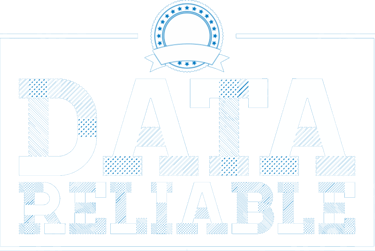Kamala Harris Responds to Hecklers on Book Tour: “I’m Not President Right Now, There’s Nothing I Can Do”
Former Vice President Kamala Harris was interrupted several times by protesters during the opening stop of her book tour in Midtown Manhattan, shortly after the release of her memoir 107 Days
Kylo B
9/26/20253 min read
Kamala Harris Responds to Hecklers on Book Tour: “I’m Not President Right Now, There’s Nothing I Can Do”
New York City September 24, 2025 Former Vice President Kamala Harris was interrupted several times by protesters during the opening stop of her book tour in Midtown Manhattan, shortly after the release of her memoir 107 Days. At the event, Harris was heckled over U.S. policy in Gaza, prompting forceful responses in which she defended her past actions, distanced herself from current administration decisions, and appealed for empathy while clarifying her limited authority. AP News+2Newsweek+2
What Happened at the Event
The incident occurred at Town Hall in Midtown, Manhattan, where Harris was speaking to about 1,500 attendees. AP News+1
Protesters inside the venue shouted “The blood of the Palestinians is on your hands,” and others demanded she speak out more vigorously. Outside, supporters held up Palestinian flags and signs such as “Harris: Genocide is your legacy” and “717 Days of Genocide.” iHeart
One heckler yelled, “Talk to your president!” in response to complaints about Gaza. In her reply, Harris said: “I’m not president right now, there’s nothing I can do.” Newsweek+1
Harris’s Key Responses
She expressed heartfelt concern over what she described as the humanitarian suffering in Gaza: “What is happening to the Palestinian people is outrageous and it breaks my heart.” iHeart+1
While distancing herself from policy decisions made by President Joe Biden, she emphasized that she had spoken up in private settings, “in closed rooms in the Oval Office”, about her concerns. Newsweek+2The Washington Post+2
Harris also criticized former President Donald Trump, saying he had given Israeli Prime Minister Benjamin Netanyahu “a blank check” to act without sufficient diplomatic constraints. AP News+1
Why It Matters
The exchange at Harris's book launch speaks to several broader issues:
Political Accountability & Public Perception: Events like this highlight how public figures are often held accountable in public fora for policy outcomes, even when those figures lack direct authority over those policies. Harris’s remark about not being president, for example, speaks to limits of expectations vs. her formal powers.
Intra-Party Tensions: Harris’s stance suggests her effort to draw some distance between her positions and those of the current Biden administration, particularly over Gaza. This may reflect internal Democratic debate over foreign policy, humanitarian responsibility, and political strategy.
Role of Protests & Free Speech: The disruptions show how contentious the Israel-Gaza issue remains inside the U.S. Not only are protesters outside in public, but also inside political and cultural events, forcing speakers to respond in real time. How politicians handle such interruptions can affect their public image.
Impact on Her Memoir Tour: The incident may amplify interest in her book 107 Days, which already contains reflections and criticisms about her recent campaign and her role in the administration. Moments like this can generate viral content, media attention, both supportive and critical.
Centrist View: Empathy, Clarity, and Realism
From a moderate standpoint, Harris’s responses are predictably complicated:
It’s reasonable for her to express empathy and emotional concern; many in her audience clearly want moral clarity and acknowledgment of suffering.
But there is a risk in understating or shying away from accountability. While Harris is not president, as a public figure and former vice president, many expect her to have some influence, moral or otherwise, over domestic debates and foreign policy concerns.
For those seeking political coherence, the question is how she balances messaging: being seen as compassionate, principled, and outspoken without falling into rhetoric that oversimplifies complex policy constraints or appears to distance oneself from collective responsibility in governance.
What to Watch Next
How Harris frames her role in foreign policy in future events, whether she continues to differentiate her actions from current administration policy, or instead works through coalitions or legislative routes.
Responses from Democratic Party leaders and progressive activists: will they praise her stance, call it insufficient, or push for more public advocacy?
How this interaction affects her public perception: does it strengthen Harris among those demanding accountability, or does the “not in a position to act” line frustrate constituents seeking leadership?
Whether this becomes a recurring theme throughout her book tour, hecklers, protests, and how she addresses them, and how well she navigates these moments.
The heckling incident during Kamala Harris’s book tour opened a moment of tension, where protest meets politics, where expectation clashes with formal authority. Her responses walked a tight line: expressing empathy and moral concern, while emphasizing her limits. Whether that balance serves her well politically remains to be seen.
Subscribe to our newsletter


